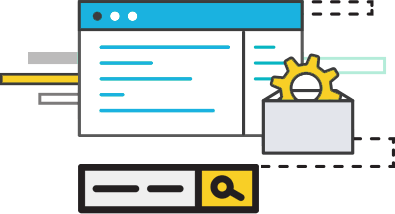
What's Big Data?
Big data refers to the collection of data that is growing rapidly with time. This data is so complex that none of the traditional data management tools can process it efficiently. There are three characteristics of Big Data – variety, velocity, and volume. Variety refers to the data (unstructured, structured & semi-structured) that is collected from various sources. Velocity is the rate or pace at which the data is created in real-time & volume is the amount of data that is generated from different sources.
Big Data is mainly categorized into three forms –
- Unstructured – the data that has no specific form.
- Structured – the data that can be stored and processed in a fixed format.
- Semi-structured – the data that has both forms, i.e., structured and unstructured.
Big Data Analytics
The utilization of analytic techniques to examine large sets of data is known as Big Data analytics. To analyze data, three types of analytics are used – descriptive, predictive and prescriptive. It helps in revealing various kinds of information such as market trends, hidden patterns, etc. Organizations use this data to make future decisions that help in growing their business.
Impact of Big Data on Businesses
Big Data helps in identifying the right audience for your business, reduce costs and improve the business process. Irrespective of your industry domain and the services/products offered, it gives a complete overview of the analytics that helps in making strategic business decisions. The power of Big Data analytics saves a lot of time by complete days of work in minutes. It further gives a proper insight regarding the choices and needs of customers in your domain.
Big Data in Industries
Healthcare
Big Data has truly transformed the healthcare sector as it helps in identifying diseases and treating various illnesses. Also, various analytic techniques help in creating algorithms that predict disease/infection in people of different age groups before their symptoms occur.
Manufacturing
A huge role is played by data in modernizing the processes of the manufacturing industry. The sector is experiencing a dynamic change with an increased level of automation.
Retail & Wholesale
The online & offline buying pattern of customers is evolving rapidly. Retailers are using data-first strategies to understand the changing demands of customers and use it to capture more online customers.
Banking & Finance
The use of Big Data has gone beyond expectations in the banking & finance sector. For instance, it helps various types of financial institutions in detecting fraudulent transactions and prevent them.
Education
Educational institutions are using a large amount of data generated in the sector to find out better teaching ways. Big Data is also helping in transforming the way education is imparted.
Hospitality
Hotels and other leisure operators are utilizing the power of data to find more ways on how to increase the number of happy customers. Analytics is most commonly used in this industry to improve management.